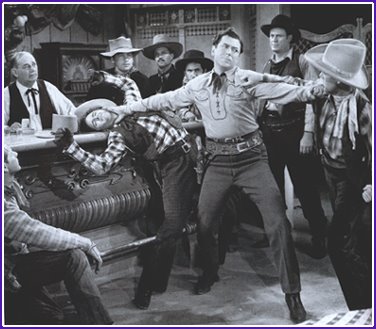Marketers and their agencies really shouldn’t talk directly to YouTube “stars.” I say that with some authority, since I’m both a product director and a guy who’s crappy videos have been seen 65 million times. You see, the marketer in me is decisive, impatient, driven to move sales and “target” customers. The creator in me is sensitive, procrastinating, egoistic and temperamental.
My sister, a news producer, lived in NYC and California, and refers to the rest of the country as “fly by states.” Indeed, the impatient Madison Avenue and expressive Hollywood are coasts apart, and that’s perhaps out of necessity.

This Great Divide is punctuated by a comment on a recent Fast Company article, titled “Move over Simon Cowell. Make way for Nalts and P0YKPAC” (and we all know this WVFF post is just an excuse to reference that headline). Said the comment by Janet Coldini:
I couldn’t disagree more. I work for a very large, successful media company that has executed 30-plus campaigns (across multiple brand categories) using YouTube talent like the ones described in your post. I can assure you that what we learned is very simple and straight-forward: YouTube celebs can attract people to watch their videos, but they can not deliver against a well-defined set of business objectives. Why? Because these YouTubers are self-absorbed amateurs grappling for 15-minutes of fame. They were inconsistent, expensive and difficult to work with. Worst of all, none of our campaign goals were achieved because the audiences were mostly generated by “bots” – maybe that’s what they call “views” in their world.
Janet’s story isn’t unique, and indeed many YouTube “weblebrities” are sudden (and temporary) pop icons, and can hardly make it to Blockbsusters on time for their shift, much less deliver for a corporate “branded entertainment” assignment. Some can attract a crowd (so can a a loud bipolar person in the park), but can’t find the delicate balance between entertainment and promotion. The result is a crappy cable-tv looking advertisement, or an entertaining video that doesn’t increase awareness, intent or purchase. Yet the vitality of sponsored videos is dependent on the balance, otherwise nobody wins.
As a marketer I know that it’s not scalable for brands/agencies to work individually with YouTube stars. As marketers awaken to online-video “stars” influence and reach, we’ll see more sponsored videos. That’s one of the reasons why, despite doing a lot of direct work for brands, I like working through Hitviews. Brokering between brands and YouTube stars is tough to do well even when it’s a company’s sole focus, and if there are other companies like Hitviews I’m not aware of them.
I am not aware of any credible YouTuber partners using “bots” to drive views (which is hard to do, and would certainly breach their contract with Google). But I do think Janet’s experience has some merit, and I believe a value-adding intermediary is vital. Someone has to translate the brand objectives into terms that captivate the creator, and keep them focused. More importantly, someone has to know whose side to take when there’s a conflict. If the “star” is being ridiculous, then they need to be told so diplomatically. In other cases, the client may have an unrealistic sense of how promotional the videos should be.
There are so many critical factors to make this work — find the right talent, handling them appropriately, brokering edits — that it’s a specialty skillset that will grow in criticality as the medium matures.

